2025 Baseball HOF preview: Wright, Pedroia among stars hoping to stay on
With the Baseball Hall of Fame's class of 2025 announcement approaching, it's time to review this year's ballot. Today, we look at six returnees still clinging to their spots at the bottom of the ballot and one first-year candidate on the bubble. All seven of these cases are worthy of further examination.
Note: All WAR figures from Baseball Reference unless otherwise noted.
Jump to:
Mark Buehrle I Torii Hunter I Dustin Pedroia I Francisco Rodríguez I Jimmy Rollins I David Wright
Bobby Abreu
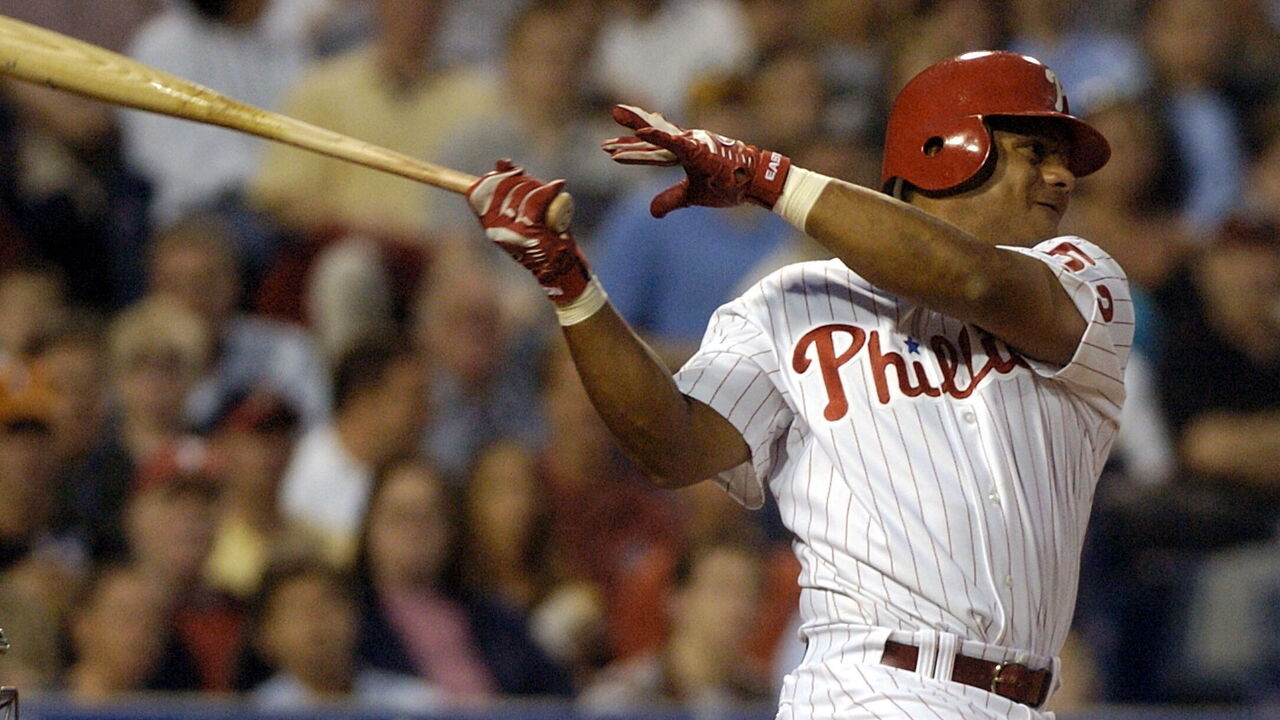
Position: RF
Years: 1996-2014
Teams: Astros, Phillies, Yankees, Angels, Dodgers, Mets
JAWS: 50.9 (22nd at RF)
WAR: 60.2 (20th)
Year on ballot: 6th (14.8% in 2024)
| GP | BA | OPS | H | HR | RBI | SB |
|---|---|---|---|---|---|---|
| 2425 | .291 | .870 | 2470 | 288 | 1363 | 400 |
Abreu doesn't have many of the counting numbers normally associated with the Hall of Fame. He wasn't the flashiest player, and he spent most of his prime with mediocre Phillies teams. But he was a quietly consistent and durable five-tool talent with an incredible knack for getting on base, ranking in the top 10 in OBP eight times. Abreu's resume also includes a pair of 30-30 seasons (one of them 30-40), eight straight seasons with 100-plus walks, and 574 doubles, tied for 25th all time.
On the metrics side, Abreu's seven-year peak WAR (41.6) is higher than those of Hall of Famers Tony Gwynn and Vladimir Guerrero, and it's a shade below the average HOF right fielder. His career WAR is better than several of his notable peers, including Guerrero and soon-to-be inductee Ichiro Suzuki. By JAWS, he compares favorably to Guerrero and Dave Winfield, among others, though he's still well below the average right-field inductee and even trails some fellow outsiders.
Abreu finally escaped the 5% danger zone in 2023 thanks to a 79.1% jump in overall support. However, the much-needed bump above 20% overall in 2024 didn't happen; instead, he lost almost a full percentage point of support. His net gain of 16 votes in '23 turned into minus-four in '24. The early returns in this year's tracker are looking up a bit: he's at 24.8% with a net gain of six, an improvement from this time last year. Still, that number will drop when private ballots are added on election day. He needs to stay above 20% in the final results to have some hope of a huge climb in his final four years.
Mark Buehrle
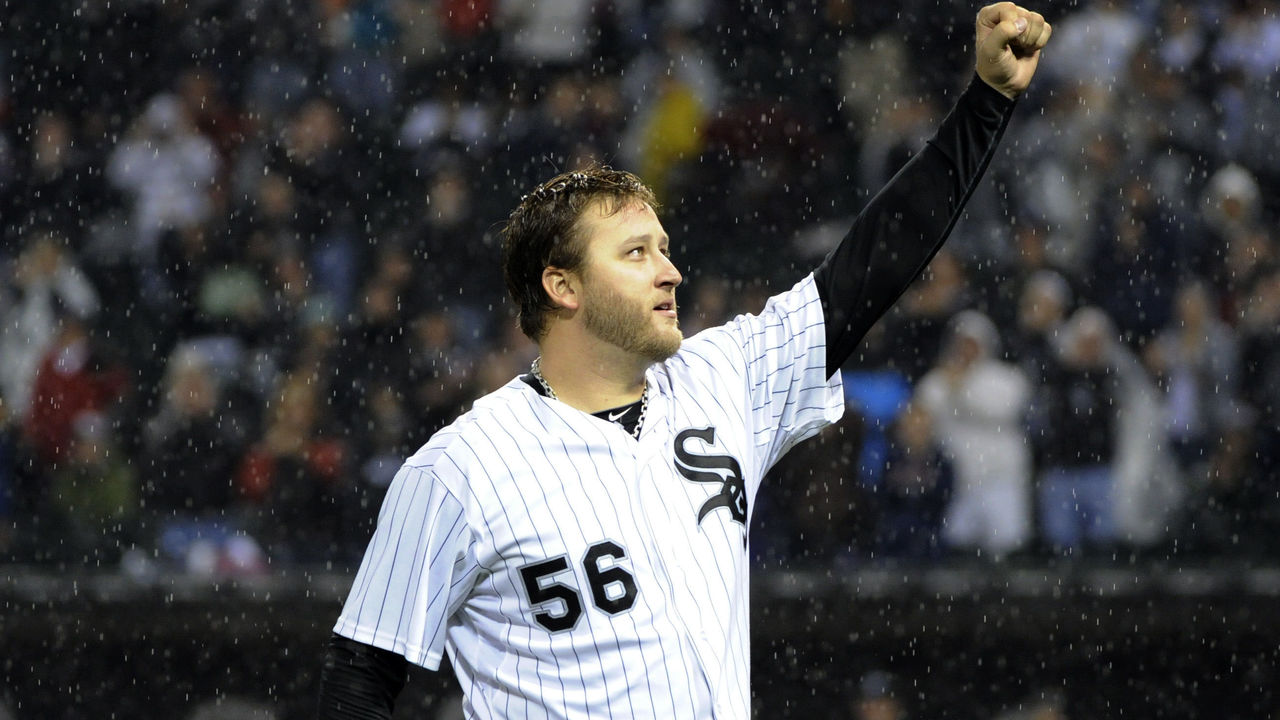
Position: SP
Years: 2000-2015
Teams: White Sox, Marlins, Blue Jays
JAWS: 47.4 (91st at SP)
S-JAWS: 47.4 (79th)
WAR: 59.1 (70th)
Year on ballot: 5th (8.3% in 2024)
| IP | W-L | ERA | WHIP | K |
|---|---|---|---|---|
| 3283.1 | 214-160 | 3.81 | 1.28 | 1870 |
He worked quickly, threw slop, and ate up innings like nobody else in his time. Buehrle was the antithesis of 21st-century starting pitching and continues to present a fascinating conundrum as he once again clings to his spot.
A 38th-round draft pick in 1998, Buehrle defied the odds to throw more innings than all but three pitchers (CC Sabathia, Zack Greinke, and Justin Verlander) since 2000, and he crossed the 200-inning mark in 14 consecutive campaigns. His resume includes five All-Star appearances, four Gold Gloves, and a pair of no-hitters, one of which was perfect. Buehrle's 12 years with the White Sox and heroic performances during their 2005 World Series run made him a hero on the South Side of Chicago, where his No. 56 is retired.
Buehrle's overall numbers, both traditional and advanced, don't scream Hall of Fame, though he gets extra points for being a dinosaur when his kind was (and still is) going extinct. That's still probably not enough - but should it be? As starting pitching continues to evolve and workloads keep decreasing, Buehrle's unique (for his era, at least) career could start to age like fine wine and look a bit more worthy against contemporary starters who will hit the ballot with far fewer innings in the coming decades.
Buehrle's five-year survival on the ballot has been as unexpected as his entire career. Last year's dip to 8.3% seemed to signal support was finally waning. But he's back up again in this year's tracker, at 13% with nine gains. That also leaves him clear of the 5% cutoff in the tracker, meaning he's all but assured of surviving for another cycle. For a player who wasn't even expected to reach the majors, let alone make this ballot, that's an amazing feat.
Torii Hunter
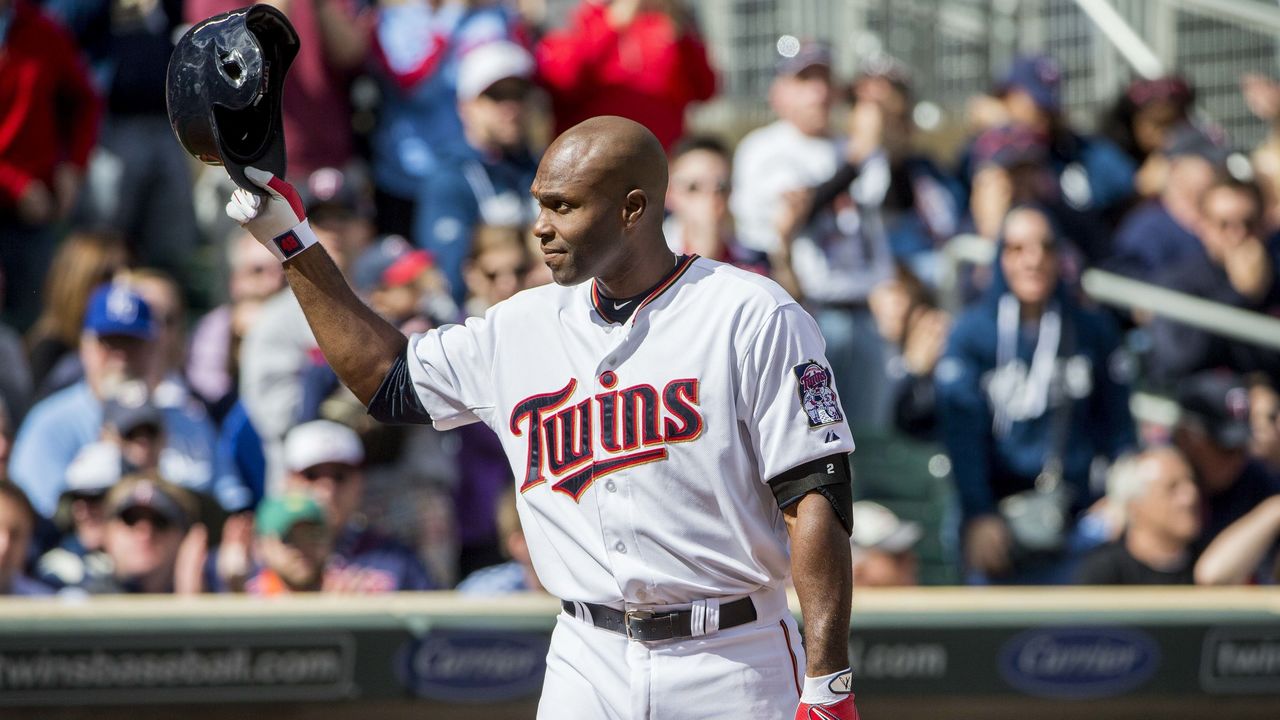
Position: CF/RF
Years: 1997-2015
Teams: Twins, Angels, Tigers
JAWS: 40.7 (35th at CF)
WAR: 50.7 (26th)
Year on ballot: 5th (7.3% in 2024)
| GP | BA | OPS | H | HR | RBI | SB |
|---|---|---|---|---|---|---|
| 2372 | .277 | .793 | 2452 | 353 | 1391 | 195 |
Defense was Hunter's calling card, and there should always be room for defense in the Hall of Fame. But he's not even close to the best defensive center fielder on this ballot.
Hunter won nine Gold Gloves with the Twins and Angels; only six outfielders have won more. The five-time All-Star contributed to playoff clubs in Minnesota, Anaheim, and Detroit, and - despite his glove-first reputation - won a pair of Silver Sluggers later in his career. He also surpassed the 2,000-hit mark, which will surely appeal to some voters. But for all of his brilliant catches - most memorably in the 2002 All-Star Game - his reputation might be bigger than his performance. He's tied for 82nd among center fielders in fielding runs, a stat that encompasses all eras, alongside the likes of Aaron Rowand, Rubén Rivera, and George Gore - whose last game came 83 years before Hunter was born.
Hunter's been scraping by 5% the last few years thanks largely to a couple extra votes on private ballots. That private voters like him isn't at all surprising, even if his survival's come as quite the shock. However, this year he's received only three votes in the tracker. If that holds, he'll need another 17 to hang on again; last year he only got six extra on election day. This will likely be his final appearance on the ballot, so let's tip our caps to Hunter for what was an excellent career.
Dustin Pedroia
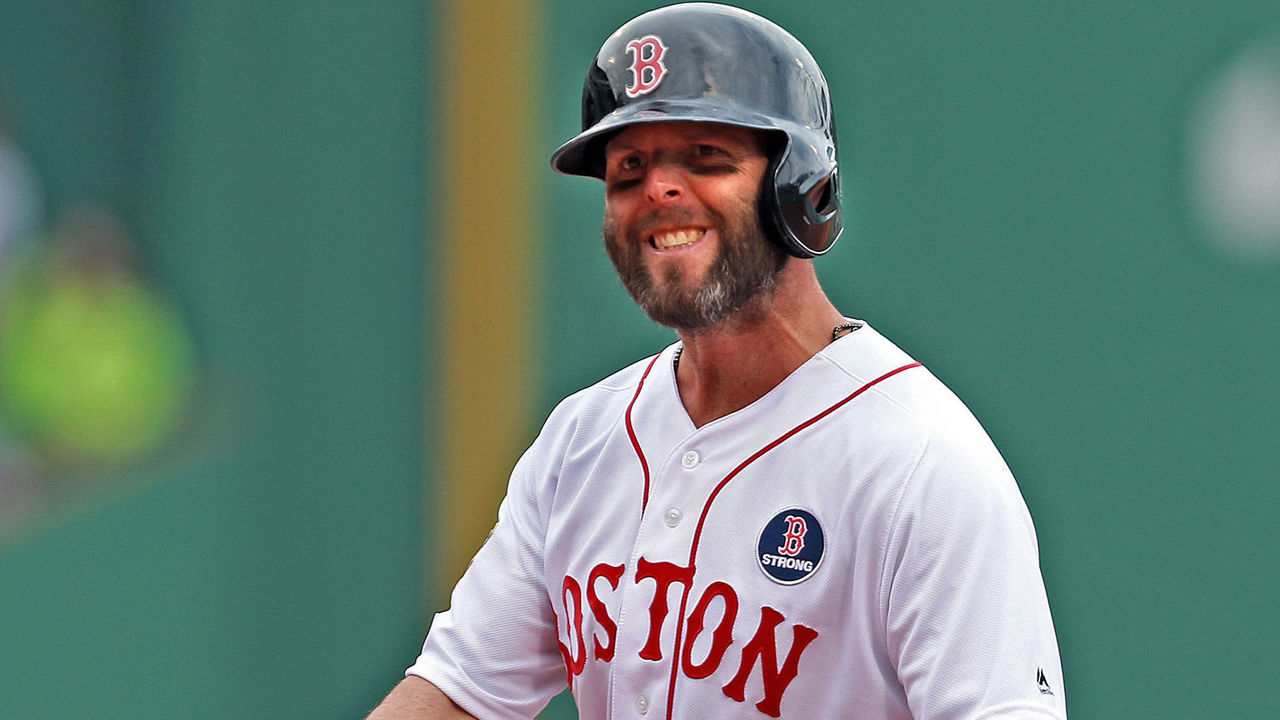
Position: 2B
Years: 2006-2019
Teams: Red Sox
JAWS: 46.5 (19th at 2B)
WAR: 51.9 (23rd)
Year on ballot: 1st
| GP | BA | OPS | H | HR | RBI | SB |
|---|---|---|---|---|---|---|
| 1512 | .299 | .805 | 1805 | 140 | 725 | 138 |
The scrappy Pedroia never let his size get in his way during a stellar 14-year run with the Red Sox. "Pedey" teamed with David Ortiz to lead the Red Sox to six playoff berths and World Series titles in 2007 and '13 (plus a third while sidelined in 2018). His individual accolades include the 2007 AL Rookie of the Year, 2008 AL MVP, a Silver Slugger, four Gold Gloves, and a pair of 200-hit seasons. His 9.7 strikeout percentage is the sixth lowest since 2000 (minimum 6,000 plate appearances). Pedroia's 99 defensive runs saved rank third all time at second base, and he's 12th at second in the all-encompassing fielding runs stat.
Unfortunately, his impressive career was fraught with injuries, a result of his dirtbag, no-holds-bar playing style. Hamstring, wrist, and knee issues limited him to 361 games after his age-30 season. Early in 2017, Manny Machado spiked Pedroia's left leg while breaking up a double play at second base, tearing cartilage off his knee. The incident effectively ended his career.
With a longer career, we're probably looking at a Hall of Famer. His early end cost him significant counting milestones such as 2,000 hits that would have boosted his case, and he's a bit further back from the average HOF 2B in JAWS and WAR than you'd want in a short-peak candidate. Pedroia does have the individual hardware and rings to enhance his resume, but they might not be enough. He also has to fight for votes with Chase Utley, another short-peak second baseman whose metrics-based case is gaining steam; Utley has Pedroia beat in JAWS, WAR, OPS+, and multiple counting stats.
While a fascinating long-term candidate, Pedroia is in danger of going one-and-done on a crowded ballot. He's sitting at 14.3% in the tracker - not bad for a first-year candidate on the bubble, but also barely out of the danger zone. At the very least, Pedroia's current total should prevent him from going one-and-done, a fate he never deserved.
Francisco Rodríguez
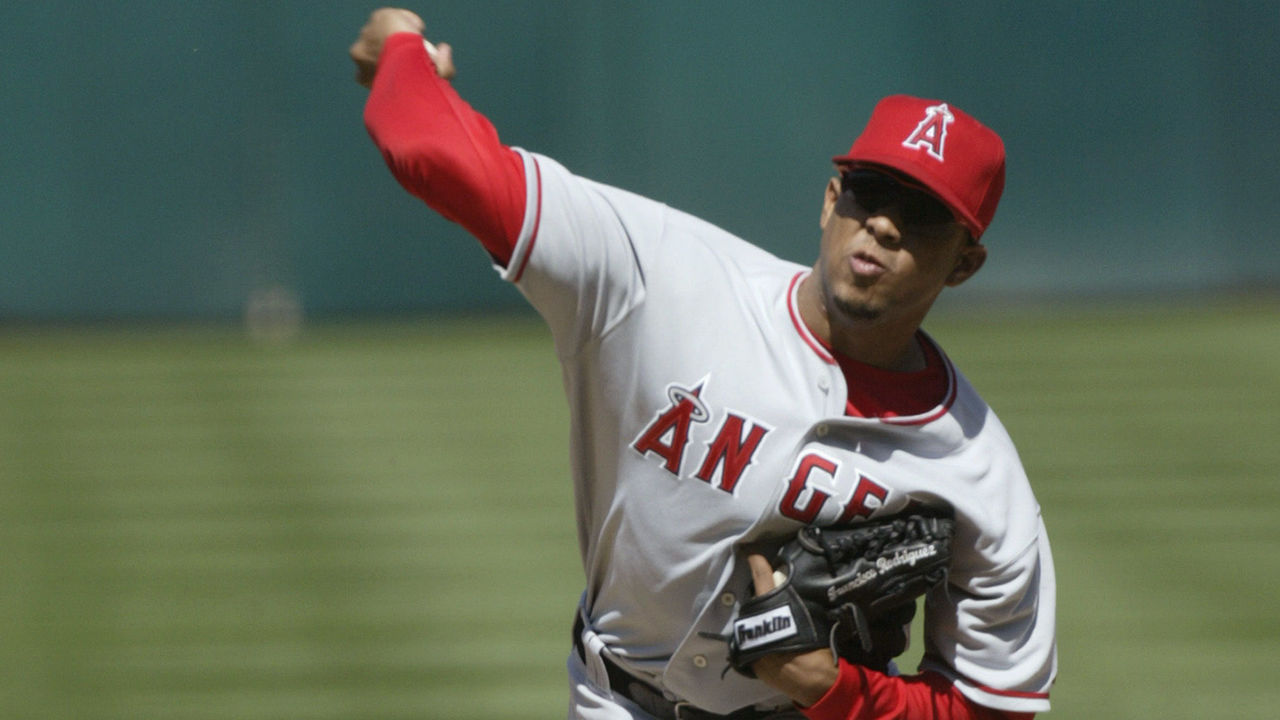
Position: RP
Years: 2002-2017
Teams: Angels, Mets, Brewers, Orioles, Tigers
JAWS: 20.9 (34th at RP)
R-JAWS: 21.1 (13th)
WAR: 24.2 (25th)
Year on ballot: 3rd (7.8% in 2024)
| IP | W-L | ERA | WHIP | K | SV |
|---|---|---|---|---|---|
| 976 | 52-53 | 2.86 | 1.15 | 1142 | 437 |
Relievers are always the most difficult Hall of Fame cases to judge, so it's good that Rodríguez has hung on longer than most. Perhaps still best known for his electric debut as a 20-year-old playoff hero on the 2002 world champion Angels, "K-Rod" sits sixth all-time in saves and led the league three times, including a single-season record 62 in 2008. He tallied six 40-save seasons and finished fourth or higher in Cy Young voting three times.
Rodríguez's spot on the saves leaderboard is impressive, but saves alone don't make a Hall of Fame reliever, especially one who was done before turning 36. An inconsistent back half of his career also puts a dent in his case. Rodríguez's 16 seasons are clearly divided into "Angels" and "post-Angels" sections, with his dominance waning after leaving Anaheim in 2009.
| Team | IP | ERA+ | FIP | K% | Opp. BA | WAR |
|---|---|---|---|---|---|---|
| Angels | 451.2 | 189 | 2.84 | 31.9% | .189 | 16.0 |
| Post-Angels | 524.1 | 122 | 3.71 | 25.5% | .222 | 8.2 |
Hindered by that post-Angels run, Rodríguez lags behind the pack in most advanced stats. R-JAWS, Jay Jaffe's adjusted metric designed to offset starting pitching numbers and better evaluate relievers, places him 13th among relievers - ahead of three Hall of Famers but still over 10 points behind the average HOF stopper. He's also well off the pace in regular JAWS, WAR, and seven-year peak WAR (17.6). That he's still competing for votes with Billy Wagner, who bests K-Rod in every category except saves and playoff performance, also hurts.
With Wagner's eligibility ending, Rodríguez is about to become the only eligible reliever with anything close to a viable case for at least the next four cycles; Wagner's expected election could also help him long term. But this only applies if Rodríguez can hold on yet again. Despite gaining four votes, he's at just 8.1% in the tracker, and it's unclear where he'll find the extra seven votes needed to stay above the cut line.
Jimmy Rollins
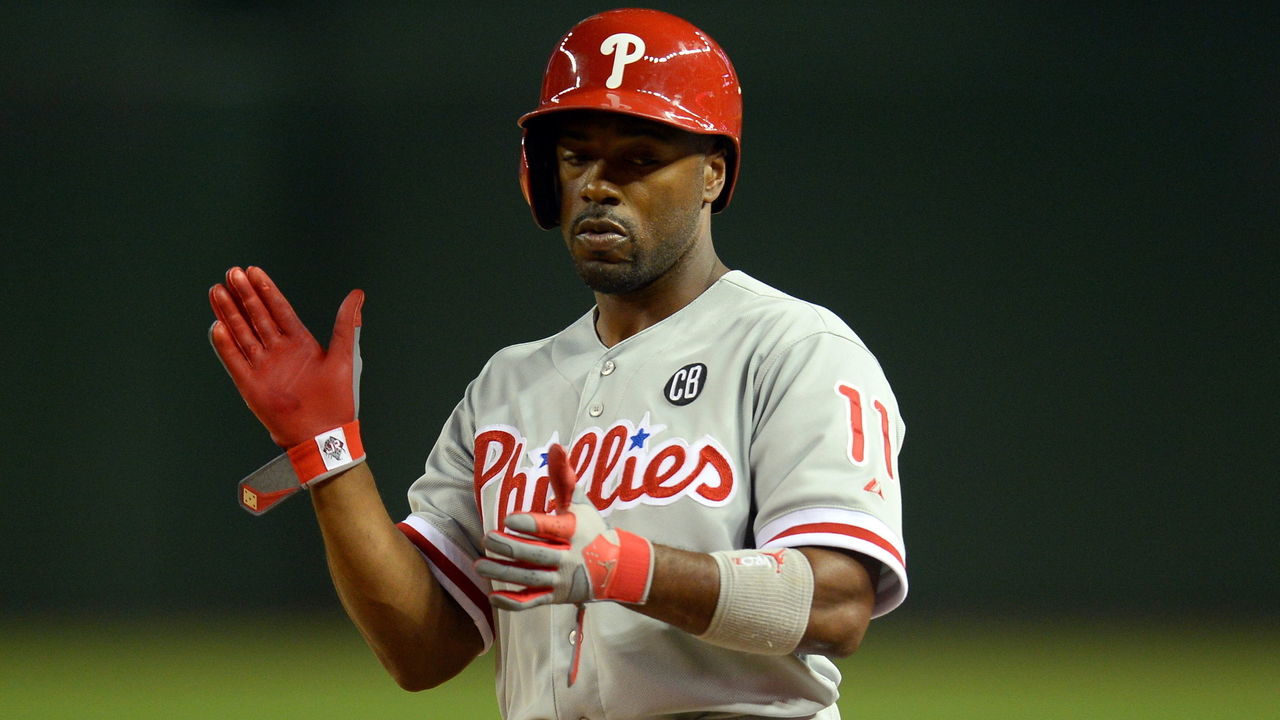
Position: SS
Years: 2000-2016
Teams: Phillies, Dodgers, White Sox
JAWS: 40.1 (34th at SS)
WAR: 47.6 (27th)
Year on ballot: 4th (14.8% in 2024)
| GP | BA | OPS | H | HR | RBI | SB |
|---|---|---|---|---|---|---|
| 2275 | .264 | .743 | 2455 | 231 | 936 | 470 |
Rollins was one of the Phillies' leaders during their late-aughts NL East dynasty. In his 2007 NL MVP campaign, he led Philadelphia to a division title by producing one of four 20-20-20-20 seasons (38 doubles, 20 triples, 30 homers, and 41 steals) in MLB history - with 212 hits for good measure. Individually, he also won a Silver Slugger and four Gold Gloves while playing on six playoff teams, two pennant winners, and a World Series champion in 2008. He's third in extra-base hits among shortstops and one of only four with 200 homers and 2,400 hits (minimum 60% of games at the position). And while his 95 OPS+ is low, it's higher than some Hall of Fame shortstops, including Ozzie Smith and Luis Aparicio.
Of course, Smith and Aparicio made up for lower offensive outputs with unmatched defensive brilliance. It's unfair to say that Rollins' glove should match them, but despite all that hardware, Rollins wasn't even close to the level below them. He's eighth in defensive runs saved at shortstop since tracking began in 2003 but sits 97th in the all-encompassing fielding runs stat (Ha-Seong Kim passed him in just four seasons). Rollins was a very good and consistent hitter, but that 2007 MVP season was his one great offensive campaign. Overall, he outranks only five non-Negro League Hall of Fame shortstops in both JAWS and WAR.
Although his credentials are easily debatable, it's clear that Rollins' candidacy is intriguing voters. Last year, he saw a slight bump to almost 15% after a net gain of 10 on the heels of net-13 in 2023. This year, he's picked up nine votes so far to jump to 19.3% in the tracker. If that figure holds, it would represent a nearly 30% bump from last year's election-day total of 14.8%, and it will come at a critical point in his candidacy. While Rollins isn't going in any time soon, he's still a name to watch closely.
David Wright
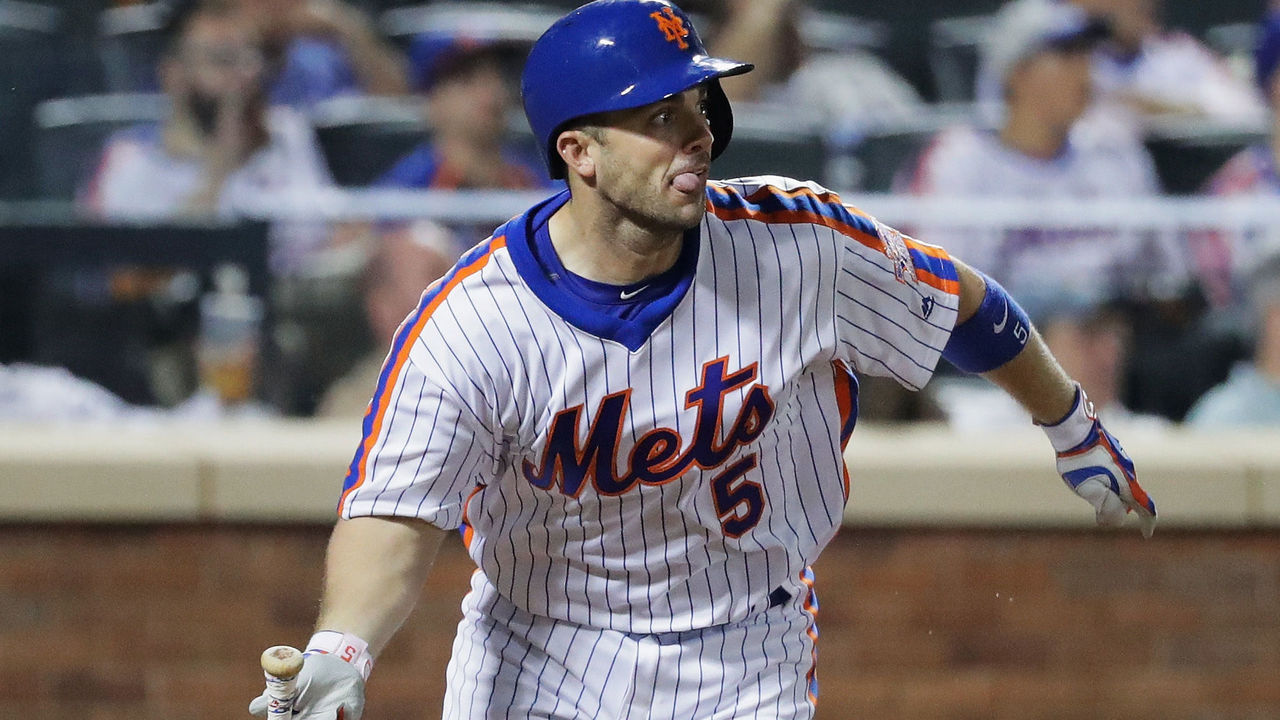
Position: 3B
Years: 2004-2018
Teams: Mets
JAWS: 44.3 (27th at 3B)
WAR: 49.2 (29th)
Year on ballot: 2nd (6.2% in 2024)
| GP | BA | OPS | H | HR | RBI | SB |
|---|---|---|---|---|---|---|
| 1585 | .296 | .867 | 1777 | 242 | 970 | 196 |
For an all-too-brief period, Wright was the NL's best third baseman. From 2006-13, the Mets icon produced 39.6 WAR, trailing only Adrián Beltré at the hot corner over that span. The seven-time All-Star won two Gold Gloves and Silver Sluggers, had two 30-homer seasons, and a 30-30 campaign when he was the NL MVP runner-up. He had five seasons with an OPS above .900, including four straight. Unfortunately, a slew of injuries after his age-30 season stopped Wright's Hall of Fame trajectory. Though he had one last big moment in the 2015 World Series, he played just 211 regular-season games over his final four seasons before retiring in 2018.
Early retirement left him well short of important career milestones such as 2,000 hits, 300 home runs, and 1,000 RBIs. If elected, he'd instantly own the fewest games played (1,585) and plate appearances (6,872) among Hall of Famers who played exclusively in the expansion era (since 1961). Even if you like short-peak, high-value players, he's got a ways to go here.
Since counting stats won't do it, his case rests largely on metrics. But Wright's placement on the third base JAWS and WAR leaderboards is a bit lower than one might expect given his peak. He's 27th in JAWS - just above Josh Donaldson and over 10 points shy of the average HOF 3B - 29th in WAR, and 23rd in seven-year peak WAR (39.5). He's been passed in the last few years by Nolan Arenado, Manny Machado, José Ramírez, and Evan Longoria.
While he's picked up a net of five votes, Wright's only at 11.2% in the tracker, and his long-term hold on a ballot spot is tenuous. He'll be rightfully honored this July when the Mets retire his No. 5, but Cooperstown just isn't in the cards right now.